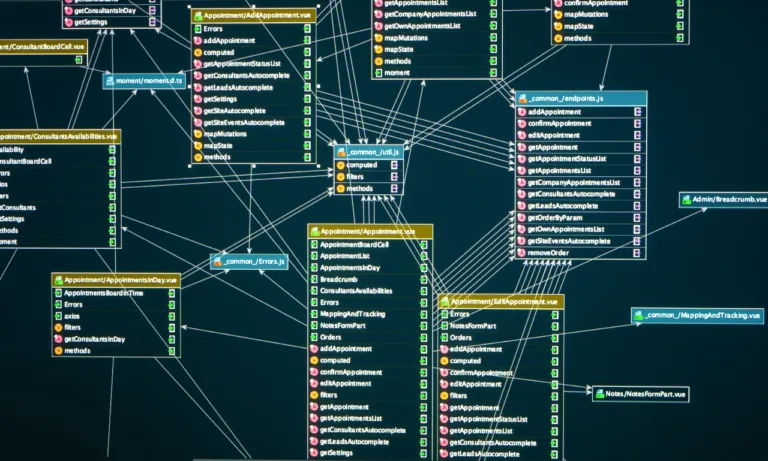Phone:
(+65)8319-0742
As the landscape of education continuously evolves, the role of Formative Support in Education becomes increasingly pivotal in shaping the academic journey. By implementing strategies aimed at academic growth monitoring and student progress tracking, educators are securing a transformative learning experience that is both dynamic and effective. The commitment to providing ongoing education support services ensures that students are not just educated but truly enlightened, paving the way for their future successes.
Through this approach, learning transcends the traditional confines of teaching, fostering an environment where continuous improvement and achievement are paramount. Cultivating a classroom climate centered on feedback and progression, students and teachers alike thrive, with the latter gaining invaluable insights to inform and enhance their pedagogy. The result? A harmonious educational ecosystem where every learner’s potential can be fully realized.
Key Takeaways
- Enhanced academic achievement through continuous formative support.
- Empowerment of students with self-regulation and clear learning outcomes.
- Integration of valuable education support services for holistic development.
- Utilization of academic growth monitoring to track and promote learner progress.
- Creation of a collaborative and responsive learning environment for all students.
Understanding Formative Assessment in the Classroom
Formative assessment represents a pivotal component in modern educational strategies, serving as a bridge to connect teacher instruction and student understanding. Within this realm, feedback and self-regulation work hand-in-hand to encourage student autonomy and learning agility.
The Essence of Feedback and Student Self-Regulation
True learning flourishes under the wing of actionable and supportive feedback. Through teacher development programs, educators learn to cultivate an environment where students are encouraged to take ownership of their learning. This is achieved through nurturing student self-regulation, empowering them to set personal goals and take proactive steps towards their academic development. Well-crafted instructional coaching resources further extend educatorsâ ability to provide tailored feedback that resonates with each learner’s unique needs.
Clarity in Performance Standards: A Foundation for Growth
Establishing crystal-clear performance standards is akin to setting the navigational beacons for students’ educational journeys. Such transparency ensures that every learner knows the target, providing a solid foundation upon which they can erect their academic achievements. Performance standards serve as the benchmarks against which students can measure their progress and continue to strive for excellence.
The Role of Rubrics in Defining Academic Expectations
Rubrics are more than just assessment tools; they are the epitome of educational clarity, offering a defined set of criteria that demystify academic expectations. By employing rubrics, educators lay out the roadway for student success, pinpointing the destination and making the outcomes of learning endeavors more predictable and achievable. It’s here that the intersection of teacher development programs and instructional coaching resources converge, enabling a finely tuned approach to formative assessment.
| Goals of Formative Assessment | Benefits to Students | Benefits to Educators |
|---|---|---|
| Enhance Student Self-Regulation | Builds independent learning skills | Provides insights into student learning paths |
| Clarify Performance Standards | Sets clear expectations | Guides goal-oriented instruction |
| Employ Effective Rubrics | Facilitates self-assessment | Streamlines grading and feedback |
Together, teacher development programs and instructional coaching resources are sculpting the landscape of education by enhancing the role of formative assessment in classrooms. By focusing on student self-regulation and setting performance standards, a more student-centered learning environment is cultivated, one that values growth and continuous improvement.
Strategies for Implementing Effective Formative Support

In the realm of education, the shift towards data-driven assessments has paved the way for innovative school improvement initiatives. At the core of these advancements lies a commitment to education support services designed to fine-tune both teaching practices and student learning experiences. It is within this context that the strategic use of formative support becomes crucial.
Formative assessment strategies are not one-size-fits-all; they require careful planning and adaptation to the unique context of each classroom. Educators play a pivotal role in tailoring these strategies to meet the diverse needs of their students. Here, we delve into a set of successful approaches for enhancing classroom instruction through the power of formative assessments.
- Employ instructional coaching resources to train educators in identifying the nuances between student mistakes and misconceptions, enhancing their ability to respond with appropriate instructional adjustments.
- Facilitate professional development workshops focused on creating and utilizing assessments that are both effective and pragmatic in measuring student comprehension and guiding future instruction.
- Encourage a culture of collaboration among educators, where they can share best practices and innovative formative assessment techniques that have garnered success in their own classrooms.
To further elucidate the impact of these strategies, the following table offers insights into the various formative assessment tools that can be utilized to support instructional decision-making:
| Assessment Tool | Description | Impact on Instruction |
|---|---|---|
| Oral Language Exercises | Interactive discussions and oral questioning. | Builds critical thinking and prompts immediate teacher feedback. |
| Student Projects | Hands-on tasks that enable application of knowledge. | Facilitates understanding of real-world application and student creativity. |
| Technology Resources | Use of educational platforms and software for assessment delivery. | Allows for quick analysis of results and personalized learning experiences. |
Integrating these formative support strategies into daily classroom activities not only enhances the immediate learning environment but also contributes to a broader scope of long-term educational improvements. As we continue to ground our practices in firm data-driven techniques and comprehensive instructional support, we foster a more dynamic, responsive, and ultimately effective educational landscape.
Formative Support in Education: Shifting the Focus from Grading to Growth

Today’s educational landscape is witnessing a vital transformation, one that redefines success not by the traditional metric of grades but by the holistic measure of academic growth. This shift is driven by a commitment to formative support services that emphasize the long-term competency development of students, marking a departure from age-old grading systems towards something far more indicative of a student’s true abilities and potential.
Grading Transformation: Reflecting Competency Over Time
The evolution in grading transformation is a narrative of change from single-instance assessments to continuous academic growth monitoring. Times are changing, and with them, the ways in which we evaluate educational progress. Approaching assessment as a narrative rather than a static snapshot encourages students to develop a growth mindset, fostering a determination to advance beyond the limitations of a letter grade.
Teaching Transformation: Responsive Instructional Practices
Underpinning this paradigm shift is the emergence of responsive instructional practices. These practices are characterized by educators’ ability to adapt their teaching methods based on formative feedback, thus respecting the unique educational journey of each learner. As we progress towards an educational model that values adaptability and responsiveness, teachers become agile facilitators of knowledge, adept at meeting the variegated needs of their students.
Student Learning Transformation: Making Education a Personal Journey
The final piece of this transformative puzzle lies in personalizing the learning process, making education a journey unique to every student. With formative support services guiding their path, students are no longer mere recipients of knowledge; they are active participants in their educational odyssey, with a clear view of their academic trajectory thanks to consistent and constructive feedback.
| Traditional Grading | Growth-Oriented Assessment |
|---|---|
| Snapshots of performance | Continuous monitoring of progress |
| Summative focus | Formative focus with ongoing feedback |
| Fixed mindset reinforcement | Growth mindset encouragement |
| One-size-fits-all approach | Tailored instructional methods |
This table juxtaposes the old with the new, underscoring the significant advantages of centering our educational praxis on the belief that every student has the capacity to grow. In light of these insights, we are not just transforming grading; we are revolutionizing the very nature of learning, teaching, and monitoring academic development. With the right formative support services in place, we can support the individual growth journey of each learner, ensuring that education is not just a series of tests, but a true reflection of their evolving competence and confidence.
Empowering Teachers with Professional Development in Formative Assessment

The continuous evolution of educational practices underscores the importance of professional development for teachers, particularly in the realm of formative assessment. By engaging in targeted teacher development programs, educators are equipped with the skills and knowledge necessary to significantly uplift the learning environment. Effective formative assessment techniques, a critical component of education support services, are fundamental to developing teaching strategies that foster student success.
Instructional coaching resources play a crucial role in this professional learning, providing educators with access to the latest tools and methodologies for conducting meaningful formative assessments. Letâs explore how these resources and programs can transform classroom practices and contribute to an empowering educational ecosystem.
Professional development programs curate a wide range of initiatives that enrich teacher capabilities:
- Workshops that focus on the development of formative assessment strategies.
- Courses that delve into data analysis for tracking student progress.
- Peer coaching sessions that encourage collaborative learning among educators.
- Webinars featuring experts in the field of educational assessment.
These initiatives not only enhance educatorsâ proficiency but also instill a culture of continuous learning among the school’s faculty.
| Development Area | Benefits |
|---|---|
| Formative Assessment Techniques | Facilitates timely and accurate feedback, tailor instruction to meet student needs |
| Data Analysis Skills | Enables educators to better track and support student progress |
| Collaborative Learning | Promotes a communal approach to problem-solving and idea sharing |
| Educational Technology Integration | Expands the toolkit for engaging students and tracking learning outcomes |
In conclusion, empowering teachers through professional development in formative assessment is key to building a strong foundation for student achievement. When educators are given the resources and training they need, the entire educational landscape stands to benefit from increased effectiveness and innovation in teaching practices.
Conclusion
In the dynamic realm of education, the embrace of Formative Support in Education signifies a monumental shift towards a progressive pedagogy focused on student-centric learning. Nicol and MacFarlane-Dick’s visionary approach brings to light the significance of empowering educational stakeholders through refined assessment methods. Progressive learning, which lies at the core of this approach, offers an interstice for students to engage deeply with their academic journey, setting the stage for both immediate success and lifelong learning. It is within this structured yet nurturing framework that students can thrive, with education support services playing an instrumental role in maintaining the momentum of individual growth.
Data-driven assessments, a key component of this holistic educational mindset, supply teachers with precise tools to track student progress. This intelligence informs targeted and responsive teaching strategies that are vital for addressing the diverse needs of learners. More than just a measure of academic prowess, these assessments serve as a beacon, guiding students towards their educational aspirations while providing educators with credible, actionable insights. The result is an enriched learning environment where feedback becomes a catalyst for constructive reflection and continual evolution.
Ultimately, the potent synergy between student progress tracking and formative assessment fosters a climate of constant improvement. Such an environment is ripe for the germination of positive motivational beliefs, driving the engine of academia and personal development ever forward. This pedagogical evolution, interwoven with commitment and foresight, ensures that the educational journey is not just a passage but a transformational experience – one that equips learners with the skills to navigate the multifaceted landscapes of their future endeavors.
FAQ
What is Formative Support in Education?
Formative Support in Education refers to the practices and methodologies used by educators to continually assess and support student learning. It includes monitoring academic growth, tracking student progress, and providing regular feedback to help students understand their performance and improve continuously.
How do education support services contribute to student success?
Education support services offer resources, training, and tools to help educators effectively implement formative assessment practices. Support services may include professional development programs, instructional coaching, and access to data-driven assessments, all aimed at enhancing the learning experience and promoting academic achievement.
Can Formative Support in Education improve self-regulation in students?
Yes, quality feedback in formative assessments helps students to identify their strengths and weaknesses, guiding them to become proactive in their learning process. This encourages self-assessment, reflection, and the development of self-regulation skills, enabling students to manage their educational journey effectively.
What role do rubrics play in setting performance standards?
Rubrics provide a clear and detailed set of criteria that define expected performance standards for assignments and assessments. They help students understand what is required of them and serve as a benchmark for both student self-assessment and teacher evaluations, facilitating academic growth.
What are some strategies for implementing effective formative support?
Effective strategies for implementing formative support include using data-driven assessments to inform instruction, adapting teaching methods to meet individual student needs, and focusing on school improvement initiatives that prioritize ongoing student progress tracking and teacher development.
How does a shift from grading to growth impact the educational experience?
Shifting the focus from traditional grading to growth emphasizes learning over time, recognising improvement, and mastering competencies. This approach promotes fairer, more equitable grading practices and encourages students to engage deeply in their learning process, leading to improved educational outcomes.
Why is professional development in formative assessment important for teachers?
Professional development in formative assessment is crucial because it equips educators with the skills and knowledge to employ assessment techniques that can profoundly impact student learning. Such programs support teachers in refining their classroom practices to create environments that foster student empowerment and success.
How does Formative Support in Education align with school improvement initiatives?
Formative Support in Education aligns with school improvement initiatives by providing a framework for consistently enhancing teaching and learning. Educators can use formative assessments to make data-driven decisions that lead to targeted instructional strategies and overall school advancement.

Unlocking Potential with Differentiated Instruction
At the heart of a modern and dynamic educational framework lies Differentiated Instruction, a scaffold…

Effective Scaffolding Strategies in Learning
With the educational landscape continually shifting towards more dynamic and personalized learning experiences,…

Enhancing Learning with Cognitive Support in Classrooms
The pursuit of academic achievement in today’s educational landscape is continually evolving, as…

Framework for Skill Development Essentials
Embarking on a journey of professional enhancement calls for a solid foundation, and leveraging an Effective…

Exploring Constructivist Teaching Methods in Classrooms
The academic landscape is perpetually evolving, with Constructivist Teaching Methods steadily gaining…
No posts found

















